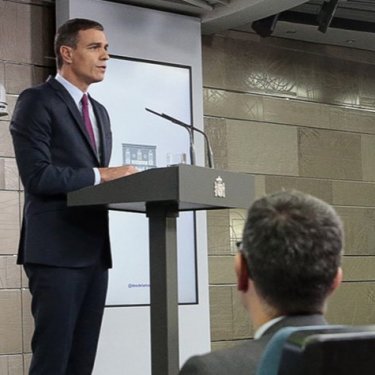Government’s anti-fake news policy potentially threatens press freedom in Spain

Reporters Without Borders (RSF) is concerned about the Spanish government’s new policy for combatting fake news, especially its loose wording, which poses a potential threat to press freedom.
Approved last month by Spain’s National Security Council, the “Procedure for Intervention against Disinformation” has been officially in effect since its publication in the Official State Gazette (BOE) on 5 November.
The new policy document provides for surveillance of social media to detect disinformation campaigns coming from foreign countries, and for the use of government campaigns to counter them.
The aspects worrying RSF include the fact that a commission consisting of government members with loosely defined powers is in charge of its implementation and decides what does and does not constitute disinformation. This is compounded by the failure to consult journalists’ associations and civil society representatives in the drafting of the document, of which the ambiguity of the wording is disturbing.
“We deplore the fact that a such a loosely-worded document constitutes the basis of an initiative to combat disinformation,” RSF Spain president Alfonso Armada said. “All over the world, we condemn laws that are supposed to combat fake news and which, in reality, are designed to erode press freedom by means of a deliberate ambiguity. This is why we ask the Spanish government to revise all of this procedure’s measures in a spirit of precision, and to reconsider its power to decide what is and is not disinformation. We are determined to monitor its implementation closely.”
In response to the avalanche of criticism of the policy from information professionals and analysts, the government has insisted that that it only concerns interference by foreign countries, especially with regard to national security or electoral processes. The document is nonetheless drafted in such a way as to not clearly exclude fake news produced in Spain, thereby opening the way to control of media content.
Aside from the lack of any participation from media representatives and civil society in its drafting, RSF has also drawn attention to the lack of any role for the ministry of education. RSF considers such a role to be essential inasmuch as only a society that is trained to identify reliable and accurate information is capable of combatting such a complex phenomenon as disinformation.
RSF also asks the government to publish data about the disinformation campaigns against Spain that it has detected, respecting not only national security constraints but also its duty of transparency vis-à-vis society and the media.
Although the European Commission has endorsed this policy document and has included it in the EU action plan against disinformation, RSF calls for its flaws and imprecisions to be corrected as soon as possible, in order to ensure that media content is not, under any circumstances, subjected to control by government officials and that press freedom is respected.
In response to the constantly growing presence of false and manipulated information online, the RSF-initiated Forum on Information and Democracy yesterday published a report entitled “How to end infodemics,” with a total of 250 recommendations based on more than 100 contributions from international experts.
Spain is ranked 29th out of 180 countries in RSF's 2020 World Press Freedom Index.



